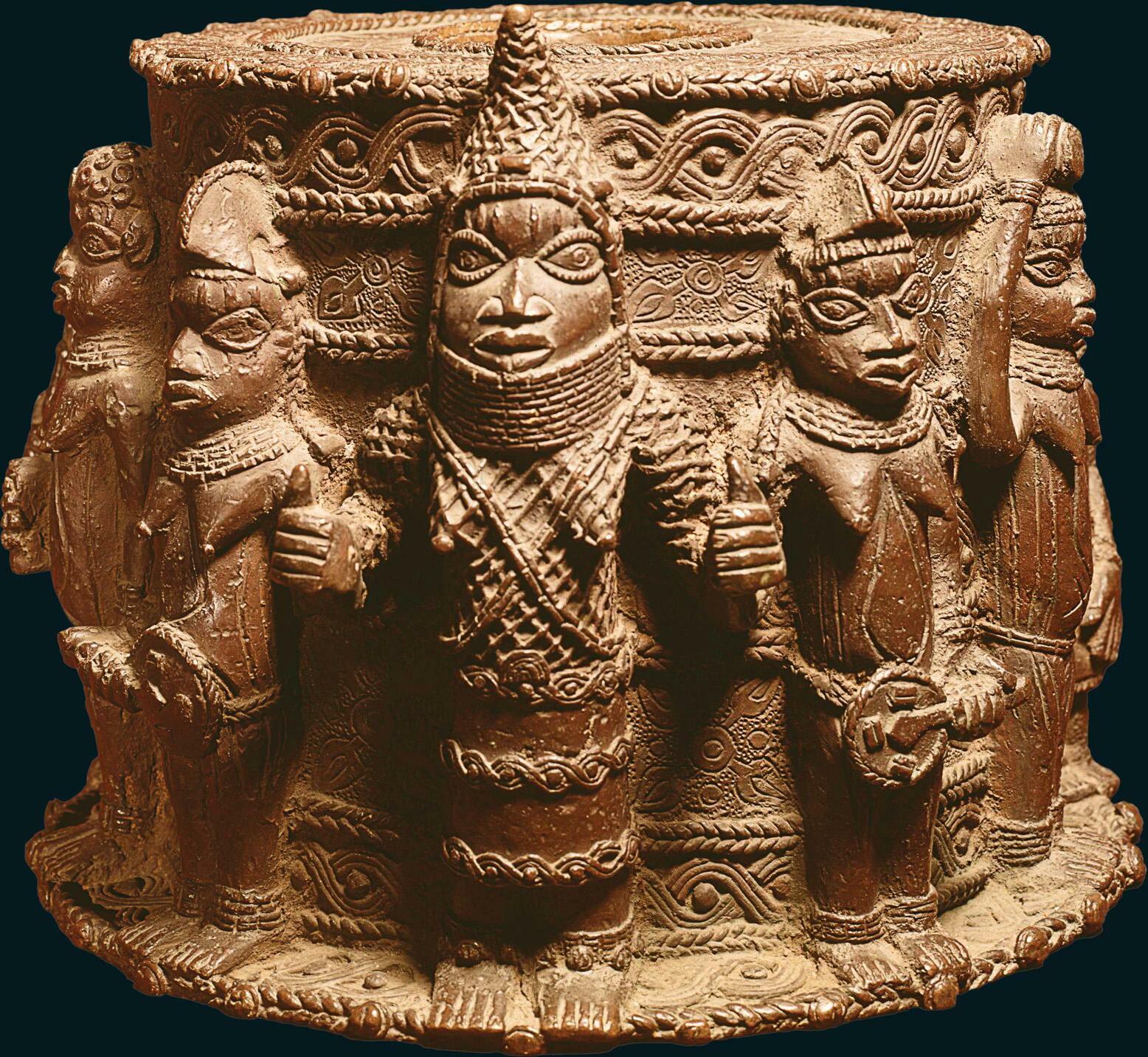試す 金 - 無料
Slavery, exploitation and racism. These tragedies have long dominated histories of Africa. But there's another way to tell this story. And it's one that puts Africans right at the centre of their continent's extraordinarily rich and vibrant past
BBC History UK
|February 2025
An 1414, in the Chinese city of Nanjing, a giraffe caused a stir. Amid a crowd of shocked, noble spectators, an official, leading the creature via a rope tied round its face, presented it to China's Yongle emperor. His officials said it was a qilin - an auspicious unicorn - which his sage governance had made appear.

This giraffe was a gift from the sultan of Bengal. But it had originally come from Africa - specifically, the city-state of Malindi in today's Kenya. In 1415, ambassadors from Malindi and Mogadishu sailed to China. In a special ceremony, the Malindi ambassadors gifted the Yongle emperor another giraffe. Delighted at having received his second qilin, the Yongle emperor gave an order. His senior eunuch, Zheng He, whom he'd charged with overseeing the construction of a 200-strong fleet of treasure ships, was to sail to Malindi to obtain more giraffes and other goods.
With the holds of his ships full of treasures, including gold, silver, silk and ceramics, Zheng He set sail for Malindi in 1417. He exchanged what he had for goods including live animals such as leopards and zebras, frankincense and ivory. Sometime between then and 1423, Malindi's king himself sailed to China to meet the Yongle emperor in Nanjing. He made it as far as Fujian, a province in south-eastern China, where he died, seemingly succumbing to illness. He was buried in Fujian, and the Yongle emperor decreed that his grave be given a small sacrifice every year.
This is an intriguing story. But for Africa, it's not extraordinary. For at least 2,000 years, African civilisations have been plugged into international trade networks. Third-century AD Nubia (now northern Sudan and southern Egypt) exported goods including gold, ivory and ostrich feathers to Rome and Yemen. Along Africa's eastern coast, from northern Somalia to southern Tanzania, east African merchants exchanged similar goods for date syrup from Persian traders, swords from Yemenis and carnelian beads from Indians.
このストーリーは、BBC History UK の February 2025 版からのものです。
Magzter GOLD を購読すると、厳選された何千ものプレミアム記事や、10,000 以上の雑誌や新聞にアクセスできます。
すでに購読者ですか? サインイン
BBC History UK からのその他のストーリー

BBC History UK
Hymn to life
Scripted by Alan Bennett and directed by Nicholas Hytner - a collaboration that produced The Madness of King George and The History Boys – The Choral is set in 1916.
1 min
December 2025

BBC History UK
Helen Keller
It was when I was eight or nine years old, growing up in Canada, and I borrowed a book about her from my local library.
2 mins
December 2025

BBC History UK
Spain's miracle
The nation's transition from dictatorship to democracy in the late 1970s surely counts as one of modern Europe's most remarkable stories. On the 50th anniversary of General Franco's death, Paul Preston explores how pluralism arose from the ashes of tyranny
8 mins
December 2025

BBC History UK
Just how many Bayeux Tapestries were there?
As a new theory, put forward by Professor John Blair, questions whether the embroidery was unique, David Musgrove asks historians whether there could have been more than one 'Bayeux Tapestry'
7 mins
December 2025

BBC History UK
In service of a dictator
HARRIET ALDRICH admires a thoughtful exploration of why ordinary Ugandans helped keep a monstrous leader in power despite his regime's horrific violence
2 mins
December 2025

BBC History UK
The Book of Kells is a masterwork of medieval calligraphy and painting
THE BOOK OF KELLS, ONE OF THE GREATEST pieces of medieval art, is today displayed in the library of Trinity College Dublin.
3 mins
December 2025

BBC History UK
Passing interest
In his new book, Roger Luckhurst sets about the monumental task of chronicling the evolution of burial practices. In doing so, he does a wonderful job of exploring millennia of deathly debate, including the cultural meanings behind particular approaches.
1 mins
December 2025

BBC History UK
Is the advance of AI good or bad for history?
As artificial intelligence penetrates almost every aspect of our lives, six historians debate whether the opportunities it offers to the discipline outweigh the threats
8 mins
December 2025

BBC History UK
Beyond the mirage
All serious scholarship on ancient Sparta has to be conducted within the penumbra of the 'mirage Spartiate', a French term coined in 1933 to describe the problem posed by idealised accounts of Sparta.
1 mins
December 2025

BBC History UK
He came, he saw... he crucified pirates
Ancient accounts of Julius Caesar's early life depict an all-action hero who outwitted tyrants and terrorised bandits. But can they be trusted? David S Potter investigates
10 mins
December 2025
Listen
Translate
Change font size

